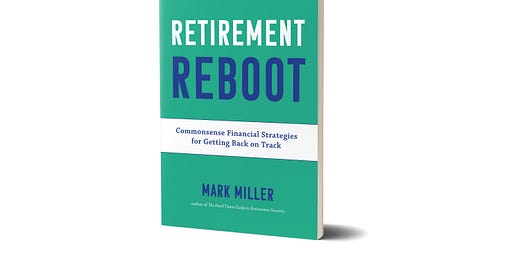HSAs look better as a tax shelter than they do for savings
We have better policy options for controlling health care costs, and expanding coverage
No doubt about it, health care costs are one of the top challenges retirees face - especially at a time when overall inflation is running hotter than anytime in the last few decades.
Enter Health Savings Accounts (HSAs), which offer an unmatched tax shelter for dollars that can be used to pay health care expenses. HSA adoption has grown rapidly in recent years, fueled by the rise of high deductible health insurance plans.
Fans HSAs often argue that they can be a great way to build savings that can be used to meet health costs in retirement. And the tax advantages are compelling: HSA contributions are tax deductible, investment growth and interest are tax deferred, and withdrawals spent on qualified medical expenses also are tax free. The triple tax benefit increases buying power, especially when compared with drawing down from a 401(k), which is subject to ordinary income tax on contributions and investment gains.
Some policymakers would like to loosen restrictions on HSA eligibility, contributions and withdrawals. But is that the best policy approach to help Americans cope with rising health care costs, and access care? The track record of these accounts suggest that they are most beneficial for people with high incomes, but do little to expand coverage and affordability for the broader population.
Meanwhile, HSA tax breaks are projected to cost the federal government more than $180 billion in foregone revenue over the next decade.
My latest Morningstar column explores HSAs, who they benefit - and how we could do better when it comes to making health care more affordable and accessible.
Note: this week, the IRS announced a large increase in HSA contribution limits for 2024, driven by inflation.
Retirement Reboot: The podcast
Retirement Reboot: Commonsense Financial Strategies for Getting Back on Track already is headed for a second printing and an audio book is in the works! That last bit of news surprised even me - what’s next, a major motion picture?
But even before the audio book comes out, you might want to check out the podcast series I produced earlier this year exploring Social Security optimization, navigating Medicare, saving for retirement and more. You can find all six episodes here, or Apple Podcasts, Spotify or IHeart Radio.
AI “prior authorization” is coming for us all
Regular readers know that I’m no fan of Medicare Advantage plans, which are known for their high rates of denial of care and “prior authorizations.” That’s why a recent column by Elisabeth Rosenthal of Kaiser Health News caught my eye. Rosenthal details how denials of health-insurance claims are rising — and getting weirder by the day - partly due to automation. Stat News recently uncovered the rising use of artificial intelligence in their denial of claims processes.
Rosenthal’s column uncovers just how bizarre some of these computer-generated denials can be, including this example:
In Retirement Reboot, I lay out my case for readers to use traditional Medicare, and stay away from Advantage.
What I’m writing
In case you missed any of my recent stories…
How solo gigs can boost your retirement - The New York Times
Politics put the brakes on social investing - WealthManagement.com
Inflation and the markets take a bite out of retirement confidence - Reuters
What I’m reading
How to recover a lost pension . . . The greatest wealth transfer in history is here . . . . Should Medicare pay for the new anti-Alzheimer’s drugs?




